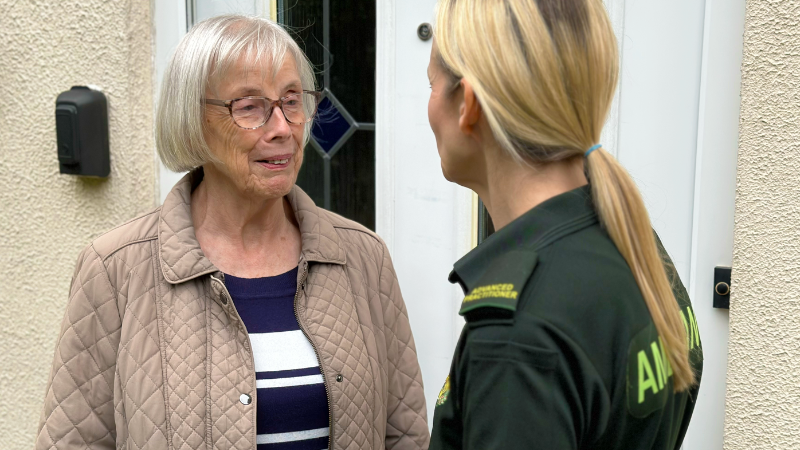
Last year, we responded to over 100,000 emergency calls relating to falls either over the phone or in person. The number of emergency calls we receive for falls is always high, but this figure increases during winter. The service responded to 60 per cent more falls-related calls across the North West from December 2021 to February 2022 compared with autumn of that year
Most of us will have experienced a fall at some point. Having a fall will be nothing more than a bit embarrassing for many, however, a fall can be startling, upsetting and life-changing, especially as we get older.
78% of our falls-related 999 calls in 2022 were for patients aged 65 and older, with this age group more likely to require hospital treatment than younger patients.
There are several reasons why people fall which can all intertwine. This can be down to personal risk factors such as weak muscles, sensory issues, poor balance and walking difficulties. It can also be down to chronic medical conditions, medication side effects, delirium and fall hazards around the home.
Community Specialist Paramedic Sara Harris says: “At home, we tend to move around without thinking about our safety as it is where we are comfortable and where we spend much of our time. Falls prevention in and around the home may seem like common sense, however, it isn’t always easy to recognise the things that can cause trips, slips and falls.
“In my role, I have seen clutter, poor lighting, uneven surfaces and slippery floors as being some of the main causes of falls that could have been avoided.
“Making a few small changes at home will make it easier to get around and carry out daily activities. An important first step toward preventing falls at home is to remove anything that could cause trips or slips while walking around.”
To do this:
• clear clutter from floors or stairs – including small furniture, pet bowls, trailing cables, or other things that can cause you to trip
• avoid leaving or storing items on stairs and hallways
• arrange furniture to give plenty of room to walk freely
• remove loose mats and rugs to reduce the risk of tripping accidentally
• improve lighting
• store frequently used items within easier reach
• change or adapt furniture and furnishings to give more support.
These changes may also make it easier to get around your home and carry out daily activities.
It can be helpful to have someone else, such as a friend, relative or neighbour you trust to have a look with you to see if there is anything that could be made safer.
For more information visit: nwas.nhs.uk/falls